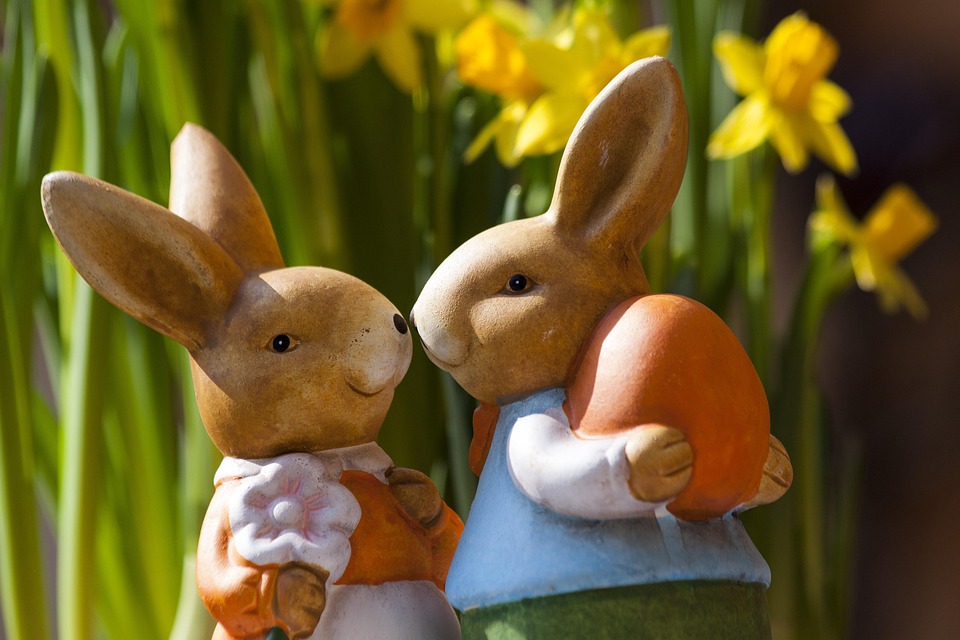Egg-citing Traditions: How Different Cultures Celebrate Easter
Easter, a major Christian holiday, commemorates the resurrection of Jesus Christ and symbolizes renewal and hope. While its theological significance remains central to many, cultures around the globe have enriched Easter with diverse traditions, many of which revolve around the humble egg. This article explores the fascinating array of customs associated with Easter, showcasing the unique ways in which different cultures celebrate this joyous occasion.
1. The Symbolism of the Egg
Before diving into the various celebrations, it’s vital to understand why eggs are such an enduring symbol of Easter. Eggs represent new life and rebirth, aligning perfectly with the themes of resurrection and renewal inherent to the holiday. Across cultures, the decoration and use of eggs have become a vibrant and integral part of Easter traditions.
2. Easter Eggs in Western Cultures
United States
In the United States, the Easter egg hunt has become a cherished family tradition. Children eagerly search for brightly colored eggs, often filled with chocolates or candy, hidden by the Easter Bunny. The White House hosts an annual Easter Egg Roll on the lawn, an event packed with games, activities, and of course, the eager rolling of eggs down a hill.
United Kingdom
In the UK, the tradition of "egg rolling" takes center stage. Hard-boiled eggs decorated in vibrant colors are rolled down hills, with the winner being the egg that rolls the farthest without breaking. Additionally, chocolate eggs are exchanged, often elaborately wrapped, and Easter cards featuring eggs and bunnies contribute to the festive atmosphere.
3. The Egg-ceptional Celebrations in Eastern Europe
Poland
In Poland, the celebration of Easter includes a unique custom called "Śmigus-Dyngus," also known as Wet Monday. On this day, it is tradition for boys to douse girls with water, commemorating the cleansing of sin and embracing spring. Additionally, decorated eggs known as "Pisanki" are exchanged and displayed. These eggs are intricately designed, reflecting traditional folk art.
Ukraine
Ukrainian Easter eggs, or "Pysanky," are renowned for their intricate designs using a wax-resist dyeing technique. Each color and pattern holds significant cultural meaning, often derived from ancient pagan symbols. Pysanky are not just beautiful; they carry rich histories and stories that reflect the identity of the Ukrainian people.
4. Celebratory Feasts and Foods
Italy
In Italy, Easter Sunday is marked by a festive meal that often includes lamb, symbolizing sacrifice and Christ’s resurrection. A notable Italian tradition is the "Colomba di Pasqua," a dove-shaped bread rich with candied fruit and almonds, symbolizing peace and harmony. The involvement of family in preparing these dishes embodies the essence of community and celebration.
Greece
Greek Easter celebrations, known as "Pascha," are steeped in custom and ritual. The highlight is the preparation of "Tsoureki," a sweet braided bread, often adorned with red-dyed eggs symbolizing the blood of Christ. At midnight on Holy Saturday, Greeks gather to proclaim the resurrection with candles and fireworks, followed by a midnight feast filled with lamb dishes and festive pastries.
5. Easter Traditions Beyond the West
Ethiopia
In Ethiopia, Easter is celebrated with a feast known as "Fasika." It follows a lengthy fast, and the celebratory meal often consists of doro wat (spicy chicken stew) and injera (a sourdough flatbread). Ethiopians also partake in religious observances, including church services filled with hymns and communal prayers, emphasizing the spiritual focus of the holiday.
Australia
In Australia, the Easter Bunny has been swapped for the Easter Bilby to raise awareness about the country’s endangered native species. This creative shift highlights how cultural symbols adapt over time, embracing a modern environmental consciousness while still featuring the joyous themes that signify Easter.
Conclusion
Easter is celebrated in myriad ways across the globe, each tradition reflecting unique cultural histories, values, and practices. From egg rolling contests in the UK to intricate Pysanky in Ukraine, and festive feasts in Italy and Greece, the essence of Easter unites people in shared joy, renewal, and hope. Embracing these diverse customs not only enriches our understanding of the holiday but also fosters appreciation for the global tapestry of human experience. This Easter, whether through family gatherings, community feasts, or egg hunts, we are reminded of the enduring power of tradition and the beauty of celebrating life together.
The egg is more than just a symbol of the season; it is a connection across cultures, a universal emblem of life’s continuity and the joy of renewal, marking Easter as a truly "egg-citing" celebration.


























Add Comment